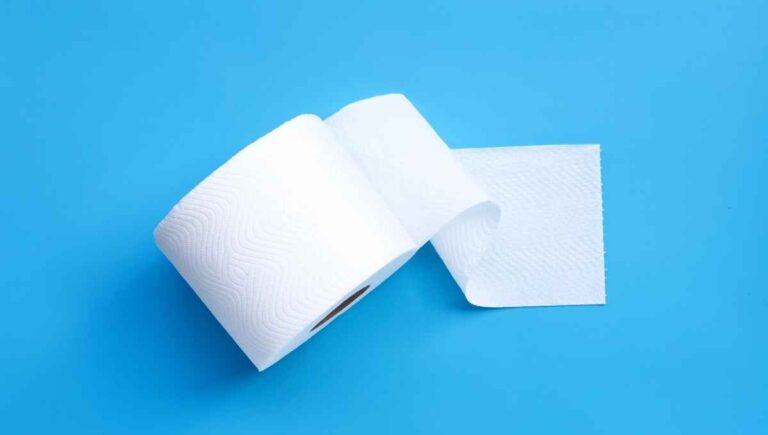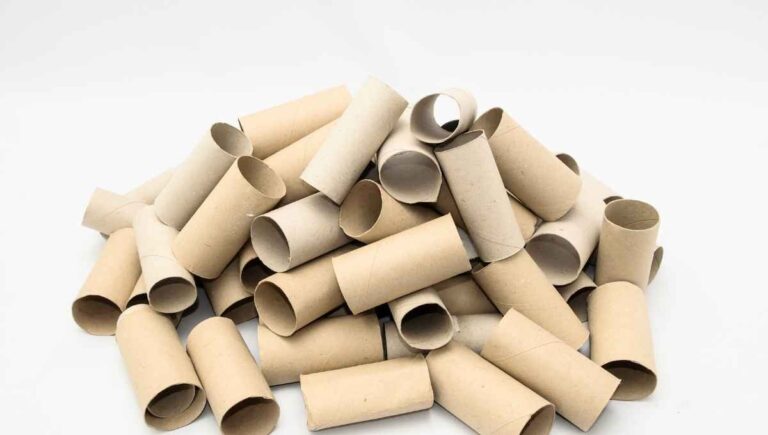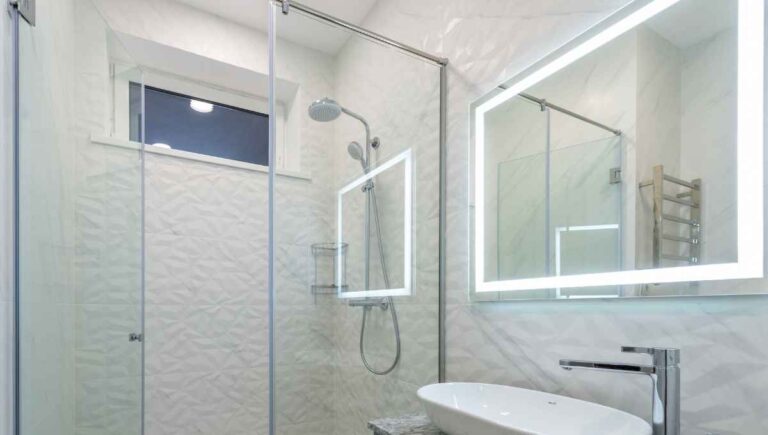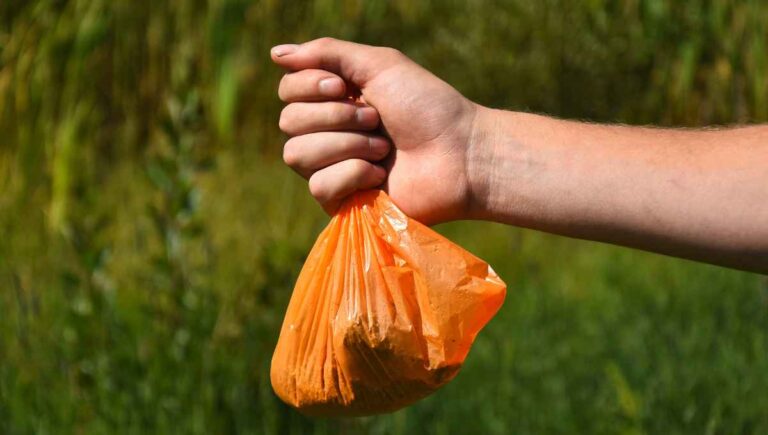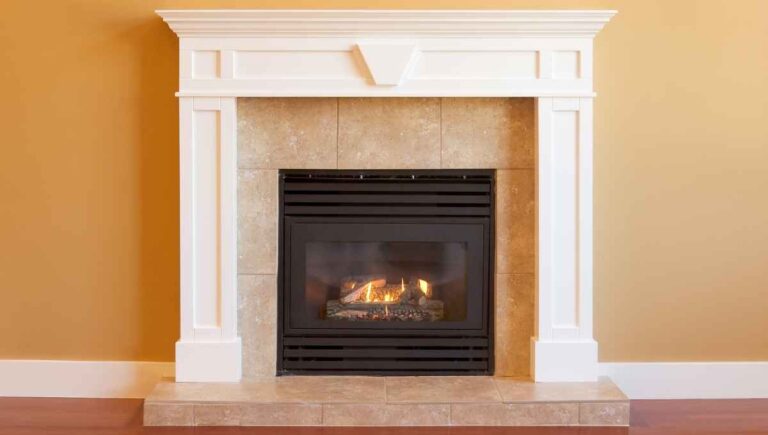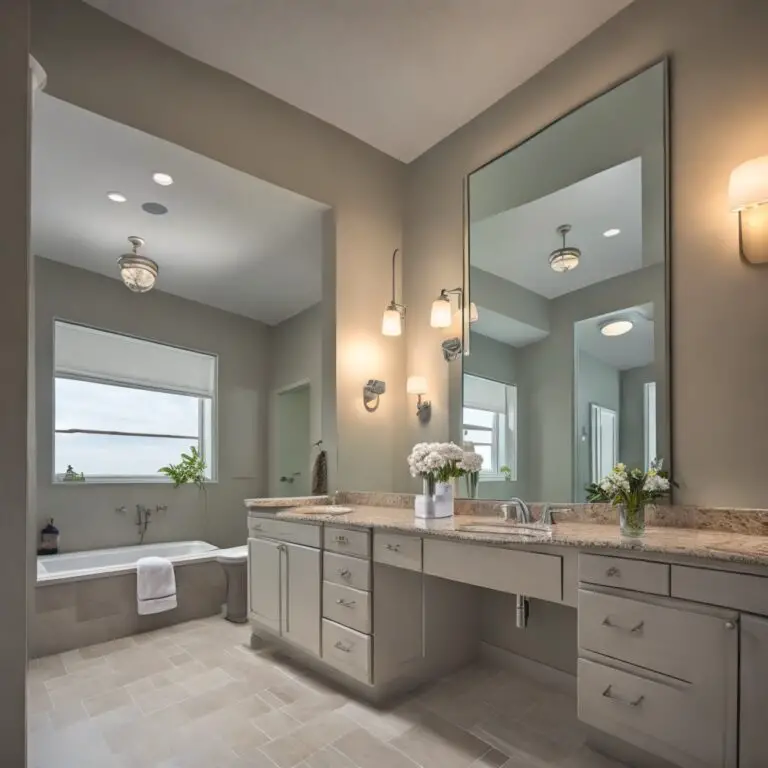Are Artificial Plants Toxic? (What to Avoid to Stay Safe)
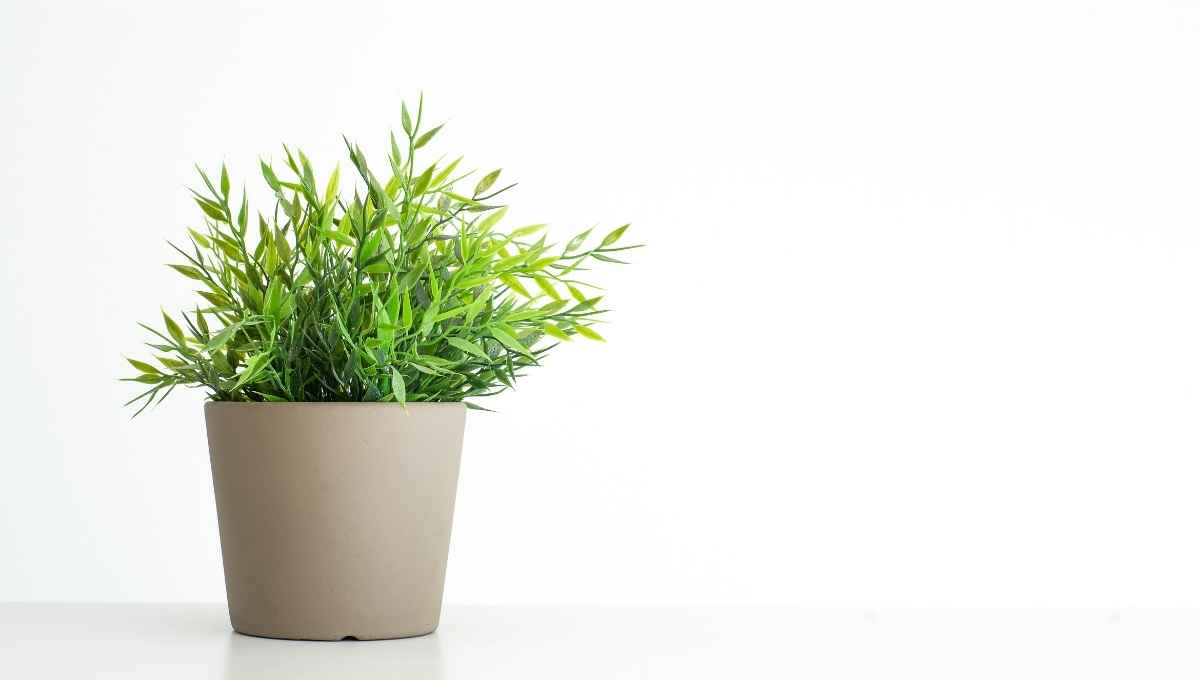
Being curious about the toxicity of artificial plants is normal when you are considering the safety of your little ones and pets. Nobody wants an accident to occur from a decoration, after all. But, we do want the looks of plants without all the hard work! So, are artificial plants toxic?
Artificial plants are undoubtedly non-toxic. Some manufacturers use questionable materials and dyes, but artificial plants are not nearly as toxic as some living houseplants are. Buying high-quality artificial plants will save you from any risk of toxicity.
Well, that’s a relief! However, there are still many things we need to consider when it comes to this matter. In this article, we’ll discuss what artificial plants are made of, if they are harmful if they affect the energy in your house, and what are some other alternatives.
This post contains affiliate links. This means Household Blogger may earn a commission should you make a purchase using any of our links. Please refer to our full affiliate disclosure policy for full details.
Here’s a Quick Pro Tip!
Artificial plants are not toxic at all, although we recommend purchasing artificial plants from a reputable source. Sometimes factories use suspicious raw materials and dyes to mass-produce artificial plants.
Here are our favorite faux plants from Amazon:
1. Nearly Natural Dracaena – This dracaena looks extremely realistic and is made from silk.
2. Faux Tabletop Greenery – These 3-pack artificial plants are perfect tabletop decorations, they are ideal for your office or kitchen.
Fake Plants – Toxic or Non-Toxic
Although artificial plants are not toxic, they are not eco-friendly or great for the environment either. Let’s discuss why.
What Are Fake Plants Made Of?
The most common material that fake plants are made of is plastic. This is usually the cheapest and the most durable fake plant available on the market. However, sometimes fake plants are made of a different material.
These materials could include silk, paper, and polyester. A mixture of these materials would make a fake plant look extremely real as some people prefer their fake plans to look as real as possible.
Are Artificial Plants Toxic?
Artificial plants are not toxic. On the contrary, some well-known houseplants could be toxic. Snake plants, peace lilies, and birds of paradise are some of the popular houseplants that could be toxic
Fake plants are mass made in factories using harmful dyes and materials that can’t be recycled. So, they are not eco-friendly at all.
Artificial plants could also be a choking hazard to pets or small children as they could swallow parts of the plastic material.
Are Artificial Flowers Toxic?
Artificial flowers are not toxic to humans, but they are toxic to the environment. The dye for flowers is made in large quantities in factories, which leads to massive amounts of waste.
Artificial flowers are also not biodegradable as real flowers are. Thus, when your fake flower gets faded or broken, you throw it away, but they take years to break down.
Whereas natural flowers start biodegrading immediately.
Are Fake Plants Bad for Your Health?
Fake plants are not exactly bad for your health, but they also do not hold any benefits for your health. Real plants release oxygen and absorb carbon monoxide, giving you fresher air, which fake plants do not do.
This means that if you do not clean your artificial plants regularly, they will attract more dust and bugs than you realize. Dusty fake plants can look tacky and dirty, so you definitely should dust your fake plants regularly.
Why Are Fake Plants Harmful to Your Health?
Fake plants could be harmful to your health because of the dyes and pigments, which sometimes contain white lead. It has a dense opacity so it is often favored by the factories that manufacture fake plants.
White lead is extremely dangerous even though painters often use it and some painters are often afflicted with ‘painter’s colic’ (lead poisoning). This same toxic component is sometimes used in the dye of artificial plants.
If you do not clean your fake plants regularly, they could also release a lot of allergens into your home. If you or someone in your home suffers from allergies then having fake plants could be bad for their health.
Are Fake Plants Good for Mental Health?
Fake plants are good for your mental health, plants (real or fake) give a relaxing ambiance to a room. Having fake plants in a room in your house can help to relieve stress, lower anxiety, and enhance productivity.
During the Covid-19 pandemic, countless plant lovers from across the world vowed that their houseplants, and fake plants, helped to reduce their anxiety and make them feel more at ease regarding the uncertain times they were in.
Do Fake Plants Bring Negative Energy?
Fake plants are known to bring negative energy into your room, according to Feng Shui. This is because fake plants are associated with the sense of death since they are not living plants.
However, if you do not follow the rules of Feng Shui, you might find that fake plants won’t bring negative energy into your home. Artificial plants could boost your mental health, as we discussed above.
Are Fake Flowers More Eco-Friendly?
Fake flowers are not eco-friendly. They are mass-produced in factories that use toxic dyes and synthetic materials to ensure that the fake flowers last as long as possible. Yet, when a fake flower is faded it is discarded into the trash.
Artificial plants and flowers are not biodegradable, which means that they do not break down easily back into the earth. Thus, they take years to break down.
Natural plants, on the other hand, are completely biodegradable. If you discard a wilted flower, it immediately starts to decompose.
Are Fake Plants Cancerous?
Fake plants are not known to cause any types of cancer. However, they still do not hold any benefits to our health or the health of the environment. In fact, they cause more harm than good in most aspects.
Surprisingly, this is a common concern for people considering buying a fake plant. But, you can be rest assured knowing that your fake plant/flower has absolutely no way to cause cancer.
However, real plants will hold more benefits to your health if you are concerned.
Are Fake Plants Toxic to Cats?
Fake plants are not toxic to cats. They act as any other piece of decoration in your home and if you buy a new plant, your cat will soon lose interest in it. Cats would be more attracted to a real houseplant.
Even if your cat starts to chew on your fake plant, it should not make them sick in any way.
You can throw a few lemon peels into the soil of your fake plant to deter your cat from trying to chew on the artificial leaves.
Are Fake Plants Toxic to Dogs?
Fake plants are completely dog-safe and not toxic at all. Some dogs like to chew and, although this might be a problem as some normal houseplants are poisonous, no fake plants are poisonous.
There are also no leaves dropping to the ground for eager dogs to chew and zero soil involved.
Fake plants could be an excellent option for you if you notice your dog likes to chew your normal houseplants or stick their nose in the dirt.
Are Fake Plants Toxic to Humans?
Fake plants are not toxic to humans. On the other hand, some regular house plants might be. Although the manufacturers of fake plants use synthetic materials and questionable dye, mostly it is completely safe.
Fake plants are not harmful to humans, cats, or dogs, but they are harmful to the environment. If you want to live a more sustainable life, then getting a fake plant would not be the right choice for you.
Decorating With Fake Plants
Decorating with fake plants is not too different from decorating with real plants. The only difference is that you do not need to take into account the sunlight requirements of the plants. Yay!
Is It Good to Have Fake Plants at Home?
Having fake plants in your home is a great alternative if you are not capable of caring for a normal houseplant. Sometimes our pets or small children make it difficult to care for a real plant.
Fake plants also are less maintenance- no need to constantly give water, sweep up fallen leaves, or replant into the new soil.
Fake plants only need to be dusted off regularly to avoid dust collecting on the artificial leaves.
Is It Okay to Decorate With Fake Plants?
Fake plants are perfect to decorate with if you have a dark apartment/room with little sunlight. They are also ideal if you do not have the patience and care to grow and maintain a real houseplant.
If you like the greenery aesthetic and mood, but do not like the mess and maintenance connected to houseplants, fake pants could be the perfect solution for you.
If you purchased premium quality artificial plants it could fool anyone’s eye into thinking they are real.
Where Should You Put Fake Plants in Your House?
The best place to put a fake plant in your house is exactly where you would place a real plant. Place your faux plants where natural light comes into the room, near a door or a window.
Another tip is to mix your fake flowers and stems with real flowers. This adds so much volume to your flowers and no one will know the difference.
You can also place your large fake plants outside, on the porch.
Are Fake Plants Bad Feng Shui?
One or two fake plants are not detrimental to the Feng Shui of your house, but having a lot of fake, tacky-looking plants could give the sense of death. You should always try to purchase outstanding quality faux plants.
If you use lush, high-quality artificial plants that look real, it does not affect the Feng Shui of your room.
Spiky artificial plants have “spikey energy”, so instead of spikey succulents, you could rather use lush ferns to improve the Feng Shui of your room.
Do Fake Plants Attract More Dust Than Real Plants?
Fake plants do not attract more dust than real plants, but often they are dustier. We tend to ‘forget’ about faux plants, so we handle them less than we do real plants. Thus, dust tends to build up more on fake plants.
If you have fake plants in your home you should include them in your dusting routine. We recommend dusting your artificial plants once a week to combat dust buildup on the leaves.
You can also use an artificial plant cleaning spray.
Are There Non-Toxic Fake Plants?
All fake plants are non-toxic. Contrary to popular belief, fake plants are safer than normal houseplants, as some houseplants could be toxic to pets. You can rest assured when you buy artificial plants that they are not toxic.
Some ROHS-compliant companies produce completely non-toxic artificial plants. These faux plants are free of mercury, lead, heavy metals, and other harmful chemicals.
These companies use the best materials to produce top-quality artificial plants.
Alternatives to Using Fake Plants
Although fake plants are a lot easier to maintain than houseplants, you might want to try an alternative. Let’s discuss the best alternatives!
What Can I Use Instead of Fake Plants?
There are several alternatives that you can try. Succulents are some of the easiest plants to care for as they require so little maintenance- only a little bit of water every few months.
You could also collect sticks and dried-up stems from your garden and place them in a pot. If it is done tastefully, it looks beautiful.
Another option could be adding paper flowers to your home to give it a youthful look.
Are Succulents Easy to Take Care Of?
Succulents are one of the easiest houseplants to take care of if you know what to do. Some people might claim that they can’t even keep a succulent alive, but odds are they never knew how to take care of succulents.
Important tips for keeping succulents alive:
- Always use a pot that has drainage holes. If you notice that your pot has none you could drill 3 holes in the bottom.
- Make sure to use soil that is succulent friendly and promotes drainage.
- Water directly onto the soil, don’t use a spray bottle.
- Succulents need plenty of sunshine. Place them near windows where they can get a few hours of sun every day.
For beginners, you could try to take care of a jade succulent.
Which Indoor Plant Is Not Toxic?
A spider plant (chlorophytum colosum) is one of the houseplants with the most benefits, it is extremely easy to take care of, it is an excellent air purifier, and it is completely non-toxic. Basically, it is the perfect houseplant.
Along with a spider plant, an African violet, trailing jade, wax plant, parlor palm, and Christmas cactus are all houseplants that are non-toxic to humans and pets and they are easy to take care of.
What Is the Healthiest Indoor Plant?
The healthiest indoor plant by a mile is the snake plant. This plant produces the most oxygen of any indoor plant and it is great for purifying the air as well. Snake plants are also very easy to take care of.
Another healthy indoor plant is a rubber plant – no, not a fake plant. A rubber plant is a beautiful plant that makes a great centerpiece for a table.
Not only is it pretty but it is a magnet for toxins such as bacteria and mold, so it basically cleans your room!
What Indoor Plant Is Safe for Pets?
Spider plants are extremely pet-friendly. You’ll often see these plants at the vet’s. These plants do not like direct sunlight, they don’t need a lot of water and they will not make your pet sick if they chew on the leaves.
Another pet-friendly option is the parlor palm. This low-maintenance houseplant is also a beautiful centerpiece while being safe for your furry friends.
No poisonous leaves here! A parlor palm only needs indirect sunlight and moist soil.
Final Thoughts
There is a stigma around decorating your home with fake plants, but hopefully, this article has helped to combat that stigma.
We have discussed ways that you can make your artificial plants look more real and how safe they really are.








